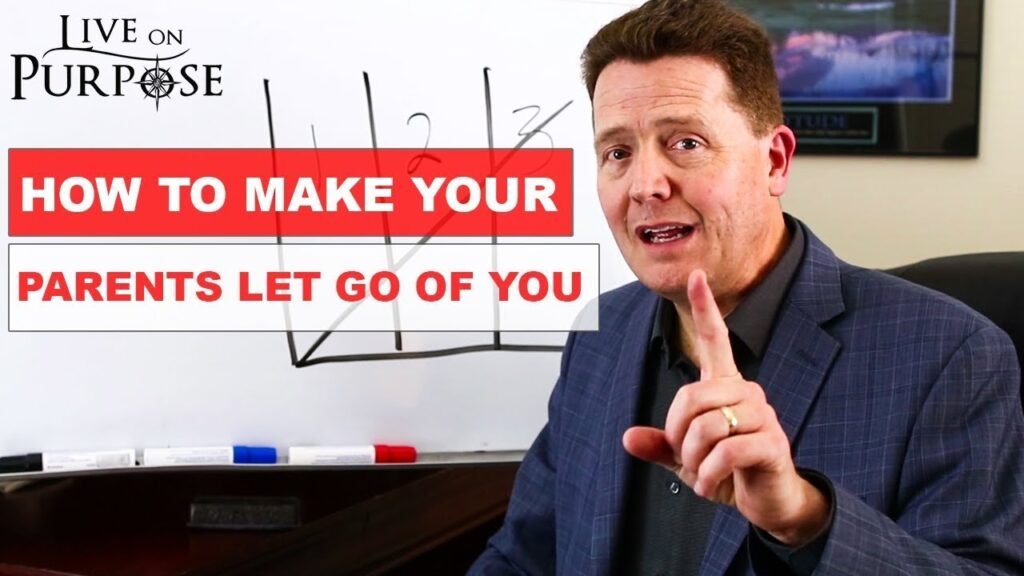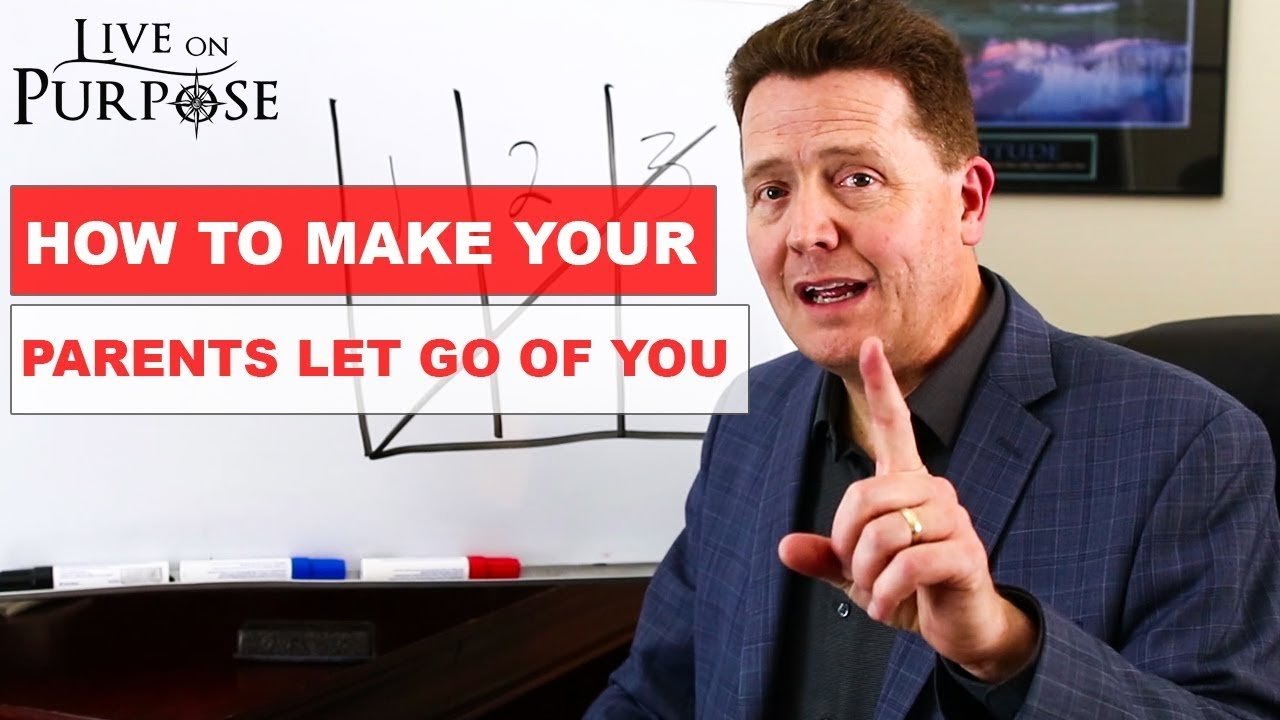In this video, “Understanding Overprotective Parents: The Psychology Behind Their Actions,” Dr. Paul Jenkins discusses the concept of overprotective parents and offers insights into their perspective. He outlines two parts of parent psychology that help explain their actions: the analogy of climbing a mountain to understand parents’ experience and the correlation between control and maturity. Dr. Jenkins suggests that by taking responsibility and demonstrating maturity through initiative, individuals may be able to alleviate overprotectiveness. He also mentions that if someone’s parents continue to be overprotective even after implementing these strategies, he is available to assist and offers to connect with them directly.
Are you dealing with overprotective parents? Dr. Paul Jenkins has got you covered in this video, “Understanding Overprotective Parents: The Psychology Behind Their Actions” on Live On Purpose TV. He delves into two aspects of parent psychology to help you understand where your parents are coming from: the analogy of climbing a mountain and the correlation between control and maturity. Dr. Jenkins encourages viewers to take responsibility and show initiative to demonstrate their maturity, potentially leading to a reduction in overprotectiveness. If you need further assistance, Dr. Jenkins is willing to help and invites you to connect with your parents to his channel.
Understanding Overprotective Parents: The Psychology Behind Their Actions
Being a child with overprotective parents can be challenging. You may often feel suffocated, controlled, and restricted in your daily activities. It is important to remember that your parents’ overprotectiveness stems from their genuine concern and love for you. In order to better understand where your parents are coming from, let’s explore two parts of parent psychology: comparing parents’ experience to climbing a mountain and explaining parent psychology based on control and maturity.
Comparing Parents’ Experience to Climbing a Mountain
Imagine climbing a mountain. As you ascend higher, your perspective broadens and you gain a better view of the landscape below. Similarly, your parents have been on this journey of life longer than you have. They have experienced more, learned from mistakes, and gained wisdom along the way. Their view is larger because they have been hiking longer. They can see potential dangers or challenges that you may not be aware of. It is important to respect their perspective, even though it may feel frustrating at times.
Explaining Parent Psychology Based on Control and Maturity
Parental control is often related to their perception of your maturity. Your parents feel a sense of responsibility for your well-being and want to ensure that you make safe decisions. They may believe that you are not yet mature enough to have full control over your own life. This perception of immaturity leads them to exert more control and impose restrictions on you. It is crucial to understand that their actions are driven by their genuine concern for your safety and well-being.

Taking Responsibility and Showing Initiative
One way to demonstrate your maturity and potentially alleviate overprotectiveness is by taking responsibility and showing initiative. By taking on tasks and responsibilities without being asked, you can prove to your parents that you are capable and responsible. For example, taking the initiative to clean the dishes without being prompted shows that you can handle responsibilities and make independent decisions. This gradual shift in demonstrating your maturity can help your parents feel more at ease and reduce their overprotectiveness.
Implementing Stage 3 to Alleviate Overprotectiveness
There are three stages of maturity: Stage 1 is characterized by selfishness and demands, Stage 2 focuses on cooperation and negotiation, and Stage 3 represents true responsibility and initiative. Practicing and consistently implementing Stage 3 behaviors can help your parents perceive you as more mature and capable. This might involve taking responsibility for household chores, managing your own schedule, and making thoughtful decisions. As your parents witness your growth and maturity, they may begin to trust you more and reduce their overprotectiveness.
Teaming Up and Assisting When Parents Don’t Back Off
In some cases, parents may not back off even after implementing Stage 3 behaviors. If you find yourself in this situation, it can be helpful to team up and engage in open and honest communication with your parents. Express your desire for more independence and explain how you have been demonstrating responsibility and maturity. Sometimes, parents need reassurance that their children are capable of handling certain tasks or situations. By offering assistance and understanding, you may be able to alleviate their concerns and find a middle ground.
Children Understanding Stage 3 Quicker than Parents
It is common for children to grasp the concepts of Stage 3 faster than their parents. As you grow and mature, you naturally develop a greater sense of independence and responsibility. This can lead to frustration when your parents do not fully recognize your abilities. Remember to be patient with your parents and understand that their overprotectiveness often comes from a place of love and concern. Continued communication and demonstration of maturity can help bridge this understanding gap.
Offering Help and Inviting Connection to Channel
If you feel overwhelmed or unsure about how to navigate your relationship with your overprotective parents, know that there are resources available to assist you. Reach out to supportive friends, family members, or professionals who can provide guidance and advice. Additionally, the speaker in the video offers help and invites you to connect your parents to their channel. Exploring such resources can provide valuable insights and tools for improving communication and understanding within your family.
Remember, navigating a relationship with overprotective parents can be challenging, but it is important to approach the situation with empathy and understanding. By taking responsibility, showing initiative, and maintaining open lines of communication, you can gradually alleviate the overprotectiveness and foster a healthier, more balanced relationship with your parents.

